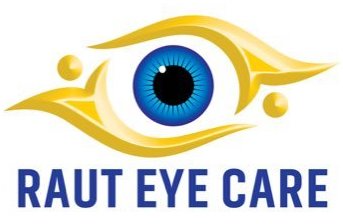Introduction
Imagine a world where the limitations of corrective lenses and the inconveniences of daily contact lens maintenance no longer hinder your ability to experience life to the fullest. This is the promise that Implantable Collamer Lens (ICL) surgery holds. ICL surgery has emerged as a revolutionary solution for those seeking clear and crisp vision without the hassles of traditional eyewear. In this article, we will explore what ICL surgery is, how it works, its benefits, risks, and the transformative impact it has on people's lives.
Understanding ICL Surgery
Implantable Collamer Lens (ICL) surgery is a cutting-edge refractive procedure designed to correct nearsightedness (myopia), farsightedness (hyperopia), and astigmatism. Unlike traditional laser vision correction techniques such as LASIK (Laser-Assisted in Situ Keratomileusis) or PRK (Photorefractive Keratectomy), ICL surgery involves placing a micro-thin, biocompatible lens inside the eye, specifically behind the iris and in front of the eye's natural lens.
The Procedure
The ICL surgery procedure is typically performed on an outpatient basis and is relatively quick, often taking less than 30 minutes per eye. Before the surgery, the ophthalmologist will apply numbing eye drops to ensure the patient's comfort throughout the process. A small incision is made in the cornea to insert the folded ICL, which is then gently positioned behind the iris. The lens unfolds naturally within the eye, and no sutures are required.
Benefits of ICL Surgery
High-Quality Vision: ICL surgery offers exceptional visual clarity and contrast sensitivity. The lens's placement inside the eye minimizes the potential for halos, glare, and other visual aberrations that can sometimes occur with other refractive procedures.
Reversible Option: Unlike permanent alterations to the cornea in procedures like LASIK, the ICL can be removed or replaced if necessary, making it an attractive option for those who may require future adjustments due to changing prescriptions or other factors.
Wide Range of Correction: ICL surgery can correct a broad spectrum of refractive errors, from mild to severe myopia and hyperopia, as well as astigmatism.
Quick Recovery: Many patients experience a relatively rapid recovery after ICL surgery. Visual improvement is often noticed within a day or two, and most individuals can return to their daily activities and work within a few days.
Considerations and Risks
While ICL surgery offers numerous benefits, it's essential to be aware of potential risks and considerations. These may include the following:
Potential for Complications: As with any surgical procedure, there is a small risk of complications, such as infection, inflammation, or increased intraocular pressure.
Night Vision Disturbances: Although ICL surgery aims to minimize visual disturbances, some patients may experience mild issues with night vision, such as halos or glare around bright lights.
Cost: ICL surgery can be more expensive than traditional laser vision correction methods due to the advanced technology and specialized lenses involved.
Post-Surgery Visits: Patients should commit to regular follow-up appointments with their ophthalmologist to ensure proper healing and optimal visual outcomes.
Life-changing Impact
For many individuals who have undergone ICL surgery, the results have been life-changing. The freedom from glasses or contacts allows them to fully enjoy activities such as swimming, sports, and outdoor adventures without the constraints of corrective eyewear. Improved self-confidence and enhanced quality of life are common outcomes of successful ICL surgery.
Conclusion
Implantable Collamer Lens (ICL) surgery represents a remarkable leap forward in the field of vision correction, offering a reliable and versatile solution for individuals seeking clearer vision without the dependence on glasses or contact lenses. As technology continues to advance, it is likely that ICL surgery will become an even more accessible and refined option, providing millions around the world with the gift of crisp, unaided vision and a brighter outlook on life. However, as with any medical procedure, prospective candidates should consult with a qualified ophthalmologist to determine if ICL surgery is the right choice for their specific needs and circumstances.


